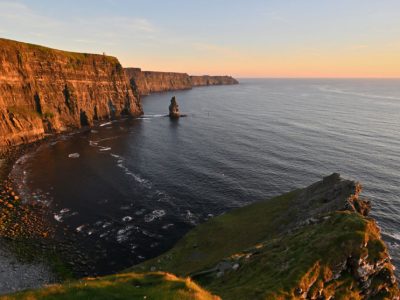10 Feb 2025by Patrick Richards
In the second of a two-part series, Terraverde Sustainability’s Patrick Richards seeks solutions to some of the challenges that have fuelled the anti-tourism seen in some destinations in recent years. You can read the first part here.
Tourism revenues all-too-often find their way back to wealthy nation through “economic leakage”, with the rate running as high as 75% to 80% in some destinations.
So what can the travel trade do to mitigate economic leakage and ensure a fairer deal for local people and tourism-dependent communities around the world?
The bad news is that intermediaries are increasingly seen as part of the problem. Consumers are often now urged to book directly with local suppliers and use local products.
This shift risks damaging the travel trade’s reputation, turning it from “purveyors of unforgettable experiences” to “exploiters of the disadvantaged”.
Regional regulations pose challenges too. The EU’s Corporate Sustainability Reporting Directive requires businesses to disclose their impact on direct employees, supply chain workers and local communities, and the results are independently audited, pushing companies to take more responsibility throughout their value chain.
Thailand is intensifying efforts to address tax avoidance by foreign businesses. The Department of Business Development there plans to investigate over 27,000 companies in 2025, targeting the misuse of local “nominee shareholders” to conceal foreign ownership and evade taxes.
Though these rules have existed for decades, lax enforcement allowed international travel companies to exploit the loophole, diverting essential income from the local economy. This has left destinations shouldering tourism’s negative impacts with minimal benefits in return.
How can tourists know if a restaurant or hotel is locally owned? Transparency is key, and tour operators and OTAs can help. Thai DMC Tripseed is leading the way with its economic distribution disclosure initiative
Tripseed transparently maps and labels more than 80 tours across Thailand, showing which areas benefit economically. This project offers travel partners and clients clear insights into who truly gains financially from these tours.
“We must discern where beneficial investment ends and exploitation begins,” says founder Ewan Cluckie.
Naturally, Tripseed is not alone; others, like WithLocals, TravelLocal or Not in the Guidebooks, take a similarly ethical approach. But as tourism grows, the industry must ask tough questions:
- How can we balance local needs with tourist expectations?
- How can wealth be distributed fairly?
- How do we protect heritage and ecosystems for future generations?
Tripseed’s initiative should be a starting point for a more transparent industry, where suppliers like hotels, restaurants and DMCs are upfront about financial flows, using consistent methodologies.
Tour operators, meanwhile, can add value by highlighting this data to help consumers make responsible travel choices, driving a more sustainable and enriching tourism approach.
These are just some of the things travel agents, tour operators and other suppliers can do to help guard against economic leakage.
- Encourage off-peak travel – highlight shoulder seasons and lesser-known destinations to alleviate overcrowding;
- Collaborate with local stakeholders – partner with both local businesses as well as destination management organisations supporting tourist management;
- Enhance sustainability skills – offer up-skilling training and workshops to equip suppliers with the tools to develop eco-conscious offerings; and
- Reimagine travel narratives – shift the focus from over-promoted landmarks to uncovering hidden gems, providing travellers with diverse and meaningful experiences while easing pressure on well-known sites
Patrick Richards is co-founder of TerraVerde Sustainability.
Overtourism around the world
Catch up with TTG‘s ongoing series of overtourism features:












